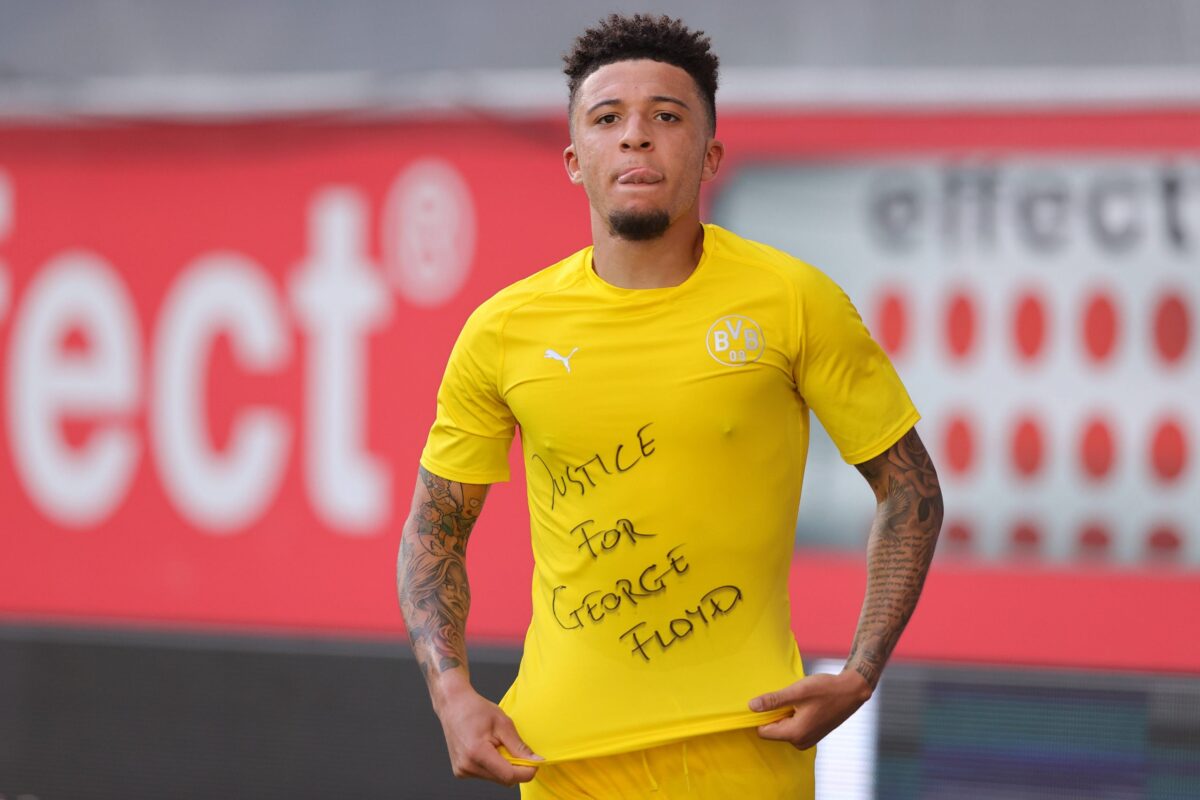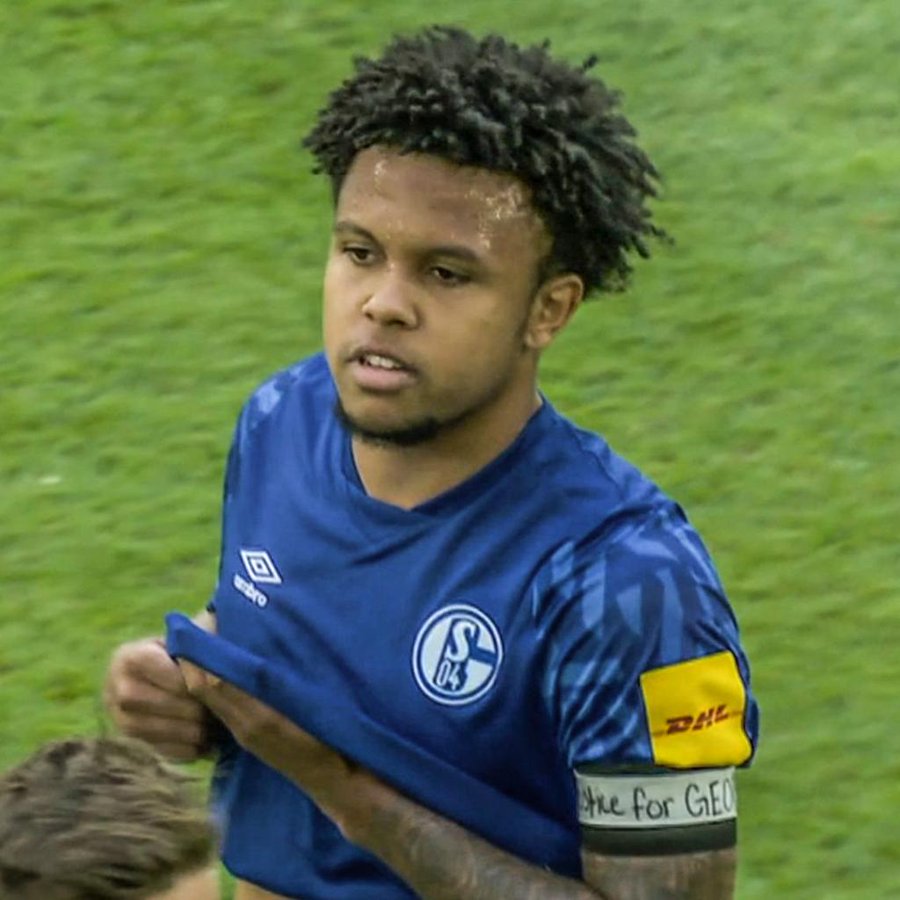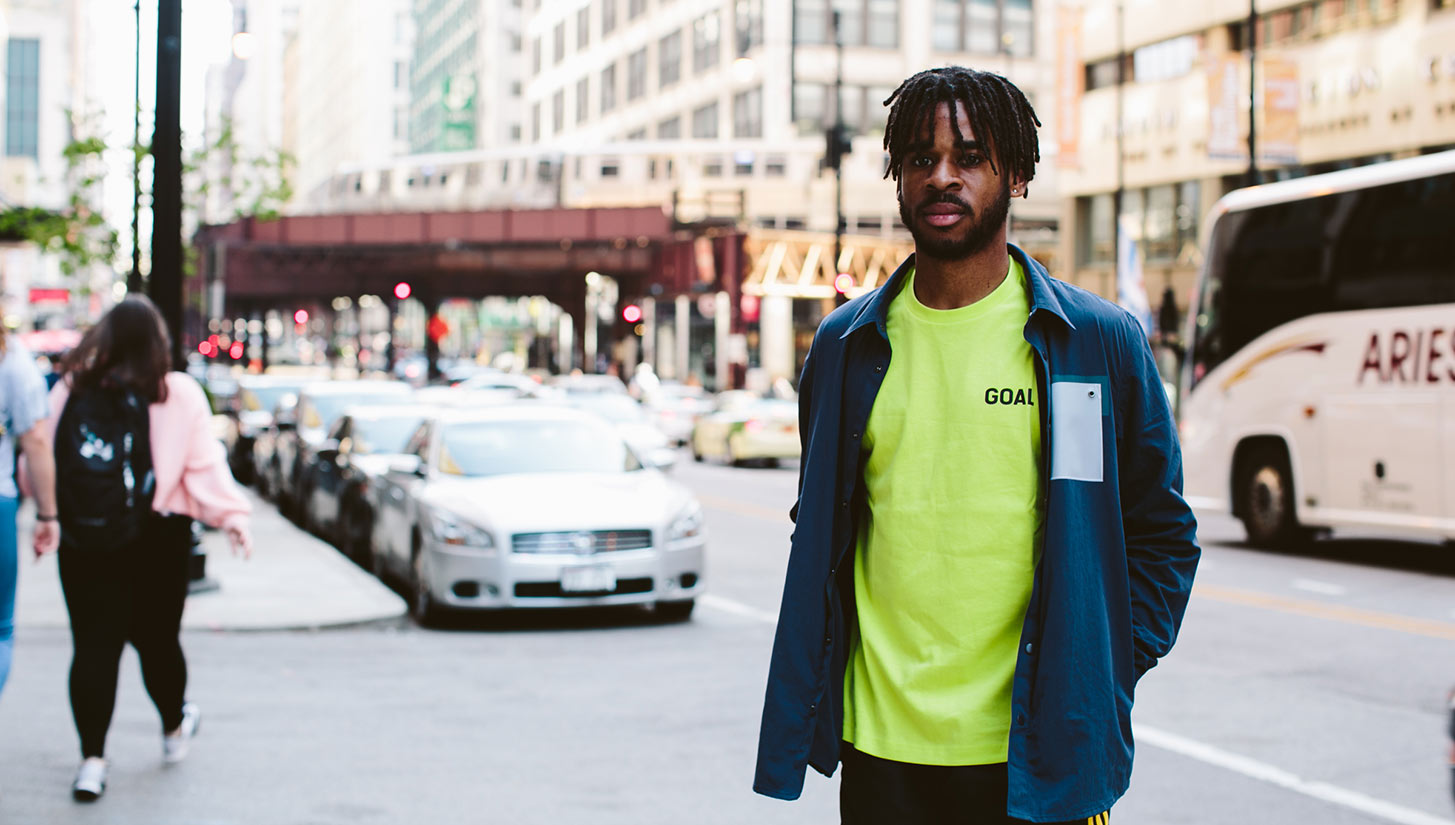From on pitch displays to social media posts, today’s young footballers are speaking out against racism through their spotlight and platforms. We sit down with to two of those players — Raheem Edwards of Minnesota United and Augustine Williams of LA Galaxy II — to get their perspective on using their voices to bring awareness to issues that matter to them.
Professional clubs and star players are currently uniting in response to George Floyd’s death to speak out against racism. They say football is a microcosm of life, and racism has been just as rampant throughout the beautiful game as it is in society (albiet with much lower stakes).
FIFA has attempted to curb this plague to the game through its “Say No to Racism” campaign over the past decade, but it still manifests itself to this day through fan chants, taunts amongst teammates, and slanted press coverage. The moments of solidarity in response to particularly ugly incidents — such as the racist fan chants directed towards Moise Kean — are always nice to see, but by and large they tend to fizzle out after a short amount of time.
The attention to racial injustices becomes fleeting in the eyes of the mainstream media, but is an all-too-reality for people of color. However, Floyd’s death can be the catalyst that helps society’s battle against racism to evolve.
For the football fan, their favorite club and/or player can be one of the most influential parts of their lives. Their respective positions on social matters can be an educational resource, and a social paradigm that broadens their outlook on contemporary issues. Case in point, AS Roma’s Missing Children campaign, which has since had over 200 clubs — including reigning Champions League winner Liverpool — join in to help missing children find safety. The two clubs have taken a monumental kneel to bring attention to the movement, and other clubs are following suit. The same is now happening following the mass protests across the globe, but instead of clubs leading the way, it’s footballers who are speaking against racism.


Jadon Sancho celebrated his goal against Paderborn by uncovering his “Justice for George Floyd” shirt, Schalke 04 midfielder and U.S. national Weston McKennie inscribed a similar sentiment on his armband in a match against Werder Bremen, and Borussia Monchengladbach’s Marcus Thuram took a knee after scoring against Union Berlin. All three players are 22 or younger, and they represent a new generation of footballers who use their voices — both literal and online — to bring attention to topics of utmost significance to them.
At this point in time, countless major sporting leagues around the world have addressed what’s happening out on American streets, which have since spread to their own respective country’s avenues. MLS is not unique to that fact. The league’s Twitter account has been quite active, and it has used it to give its players a voice on the matter. Some clubs have pushed so far as to clean out their own ranks, as the Los Angeles Galaxy have terminated the contract of Aleksandar Katai following his wife’s criticism and mocking of protesters.
I felt very lucky when Raheem Edwards of Minnesota United FC and Augustine Williams of LA Galaxy II were willing to discuss their thoughts on the protests, racism as a whole, and their personal experiences. During my call to each player, I felt it was better to let them speak their mind, rather than ask pointed, journalistic questions. I wanted to be clear that this time was theirs, and only theirs.

The first and most important thing to know about Raheem Edwards is that he’s a worker. It’s what has made him a pro and Canadian international in an otherwise unorthodox career path. During the first few minutes of our conversation, I could tell there were going to be major takeaways. What he was about to tell me seemed to have been manifesting for quite some time.
“Watching everything in the news?” Edwards asks me. “It’s a long time coming. It’s not just about what happened in Minneapolis — this has been happening this year, five years, 10 years before this, and I think it’s time to speak up about it. It turns into this cycle where another young black [person] dies in the arms of the police. We mourn for a week or two, then it’s finished. We have to break that cycle.
“It seems like it’s just for the time being. I don’t expect any person that is not black to truly understand, but the thing is, don’t comment on things that you don’t really know to be 100 percent fact — it might not be a fact to someone else. It’s a free country, you can write whatever you want to write, but know there can be consequences. [For] a person that doesn’t understand, that’s the first thing you have to do — is try to understand, learn to understand, and see why these things are happening and what’s behind it before you jump out of your first initial thought. It’s just ridiculous, but I’m not the type to post or shame people, that’s just not being a good human being. I just feel sad, it has been going on for far too long. I see another video and don’t even want to watch it anymore. It’s just the same shit.
“They say, ‘Well, he must have done something wrong.’ So what, does he deserve death? No. Either way no one deserves death, especially if you’re unharmed. Let’s be a human being. How can you hate someone for the color of their skin? How is that possible?
“That’s what racism is, it’s as simple as that. You hate someone for the color of their skin. Just be a normal human being, a real human being, a human being to the T. And it’s coming straight from the heart.
“I saw a thing where banks were [more] likely to give a loan to a poorer white family than one to a high range black family. The system has been against us since the beginning of time.
“No one’s born racist. It’s how you’re brought up, and the media can sway your mind to think some people are bad or good based on appearance. I wear baggy clothes and hoodies sometimes, so, am I a bad person? Of course not. Why are we associating that with badness. Why are you so scared — because I’m black, so I’m automatically a bad guy? I just think it’s silly. Even when Chinese people have things associated with them like Coronavirus, that’s so rude, or with Arabs and terrorism, looking at one when they’re on a plane. Some people are just shit human beings — make sure you get that last part in there.”
What Edwards was referring to with the financial aspect of racism is systemic racism. He sent me this informative and plain-language video for more context. It describes how African-Americans weren’t just in the free and clear following the Civil War, and how Jim Crow laws, redlining, gerrymandering, and other glass-ceiling initiatives made it harder for black people to prosper in America.
The day before we spoke, I tuned into Jimmy Conrad’s “The Power Hour” with MLS star Kei Kamara of the Colorado Rapids. My favorite question from Conrad was when he asked if Kamara thought there was such a thing as the “American Dream,” to which he quickly affirmed. But we’ll discuss more on that later.
Throughout the episode, Kamara cited his difficult upbringing in Sierra Leone, which had endured a civil war for more than 10 years. He mentioned how early on, he only knew of white people as the missionaries that would come over. They were the people he would chase the ball around with. But when he moved to the U.S., he learned of the deep-rooted history the country had with racism. Then, things got a bit different, including his first bout with racism at a meet-and-greet. Kamara’s story and perspective of a West African made me excited to speak with Augustine Williams, who has looked up to Kamara as a fellow Sierra Leonean.

“It’s crazy times now, to just look at the same thing that has been happening for years and years to keep on happening,” Williams said. “It’s really sad. At the end of the day we as a human race should move past this. But me being a black man in America, it’s very hurtful to see my own kind to have to go through stuff like this. It hurts a lot of people and that’s why the world is where it’s at right now.
“With all the violence you see on the news everyday, as black man, it makes me fear for my own family, and reminds me to be aware. In times like this, just getting pulled over by an officer — well you never know what can go wrong. For Floyd’s situation, to be treated the way they did — just to see another black man have to be buried by his whole family really hurts to see. That’s a shame.
“My mom sees stuff like that on the news. Every mother is worried about their own son. At the end of the day I hope that with the people being held accountable it will be a moment of progress. We all bleed the same blood. There’s no reason why others should be treated differently — we are all humans. It just seems like it’s very dangerous being out on the road and driving as a black man. That’s what keeps happening after years and years. When can we move past this? It’s 2020, these things shouldn’t be happening anymore.
“It’s like we don’t really have to go through what we are going through. More life potentially being taken away or being hurt, these are things as a nation we don’t have to go through but it’s reality that we are. We need to come together on a common ground to figure out a solution. African-Americans, other races and people do support that, yes, but we need equality.
“Fighting for their lives and fighting for their rights. That is my hope, me and millions of others speaking up for what’s right. Hopefully after all this mess is over we can have a solution for this. At the end of the day it’s very scary to be honest with you. I can be driving and God knows what might happen. The only hope is that one day, maybe not now or tomorrow but one day, we find a solution and can fix all this crazy stuff that’s going around.”
Reflecting on these conversations, one thing stood out to me. Both players want a solution to violence. Have a second glance at the last few sentences from each player — they want safety, security, and progress.
That’s the dream we must forever work towards. I thought about Kamara’s response to Conrad’s final question, about the American Dream being a myth.
“No way — America is still the greatest nation and best opportunity in the world,” Kamara said. “I’m doing something in Sierra Leone right now to show them you can play soccer and still go to school. It’s the education. We have this platform right now people didn’t have back in the day, so we need to grow and do it together. It’s so diverse, and you have to accept that.
“The little history I do know, everyone in this country came from somewhere. So the easiest way we can move forward is to accept each other….It’s such a great nation, and whatever change we can make, it will affect the rest of the world. We see it in all these places people getting bananas thrown at them, it’s everywhere. But the U.S. makes that one big step to make that change, it’s going to affect the rest of the world. So how does the trend keep going? The officers who were involved with George Floyd must be in custody, because people want to see that.”








